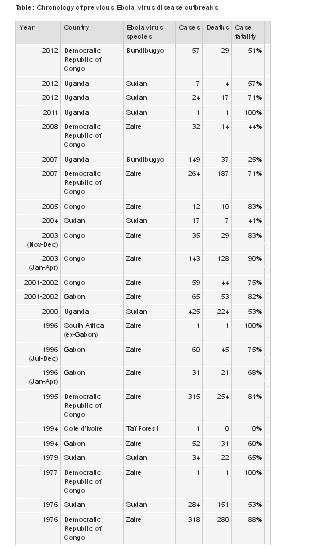Douglas Carswell in his victory speech in Clacton denounced the ‘cosy consensus, corporate politics’ that believes the only place to be is in the ‘centre’ of the political spectrum and which creates what is in effect a ‘one party state’ where the electorate don’t get a real choice and their views on subjects such as immigration or Europe could be safely ignored because a politician would know that no other party would introduce effective policies that would deal with these issues as the electorate would like…therefore he could safely ignore the electorate whilst perhaps, to keep the mob placated and quiescent, making a few suitably pro-active anti-immigration comments with no intention to implement them….and able to do this because the most powerful and influential part of the news media, the BBC, will not challenge those non-policies on immigration and rigorouly explore the issues…..it always tells us of the benefits but consistently fails to mention the severe downsides of immigration.
Part of the problem has been that the dominant Liberal Media has driven the agenda and almost forced the Tories to move leftward as Cameron decided that he had to ‘decontaminate’ the ‘nasty party’ so that the BBC et al would give it some favourable coverage…turns out he was badly wrong as Clacton proves.
The BBC has been all too ready to impose its world view upon us and force everyone else to dance to its tune. Part of the problem with the BBC is that it is made up of people who come mostly from the same backgrounds, who have almost identical views on the world and whether by design or not, shape the BBC’s output to fit with that mindset.
Nick Cohen thinks that is harmful and that the ‘Arts’ gene pool is too limited….not enough from the ‘shallow end’.
In writing this piece, I do not mean to disparage the young, privately educated journalists I see around me, the sprigs of the Fox and Irons families, the commissioning editors of the BBC and the staff of the National Theatre and Royal Opera House. They are all nice people. But there’s the rub. They are too fucking nice for Britain’s good. Their niceness is a noose that is strangling our ability to talk to ourselves and to the world.
In other words all we get is the usual ‘group think’ which only talks to itself about itself and their own issues, or of other issues, but purely from their own point of view.
You can see the effect it has had on politics with Cameron attempting to turn the Conservatives into a BBC approved centrist party delivering all things to all men…and ending up delivering nothing but a liberal approved consensus politics…a position ironically so much derided by the same BBC commenators who say they want conviction politics but who also deride the ‘nasty’ Tories and their right wing policies…now better known as UKIP….this is after all the BBC who now holds Russell Brand up as the next political Messiah with his anti-politics message. The BBC’s corralling of politicians into the centre ground has been the defining factor in turning politics into a non-contact sport where everyone basically has the same ideas without ideology, conviction or principle.
Janet Daley explains the problem with that consensus politics propped up and defended by the BBC as part of its progressive project, its Charter ordained imperative to ‘sustain citizenship and civil society’ (Though just who decides what that Society should look like seems to be left to the BBC…which is the problem):
There is to be no arguing or debating with its assumptions because those who oppose it are simply beneath contempt: fascists, reactionaries, bigots, provincial know-nothings. And this derisive dismissal cuts right across party lines. Compare Gordon Brown’s description of the Labour-voter who dared to express her anxiety about immigration as just a “bigoted woman”, with the sentiment expressed recently by a Tory commentator that the Clacton voters who could not accept the party’s modernising agenda should be ignored until they die off. This is a degree of open, undisguised contempt for the electorate that is unlike anything I have seen in my lifetime.
I thought the basic principle of democracy was that leaders were elected who would embody the will of the people, not that the people had to comply with the will of the leaders or be rejected as unworthy.
That contempt for the People is only possible where the dominant state broadcaster controls the message…..essentially if something isn’t on the BBC it can be safely ignored by politicians.
Here is Roger Scruton’s take on what has happened to politics and the Conservative Party:
[In the Progressive Liberla’s world] no freedom is absolute, and all must be qualified for the common good. Until subject to a rule of law, freedom is merely “the dust and powder of individuality”. But a rule of law requires a shared allegiance, by which people entrust their collective destiny to sovereign institutions that can speak and decide in their name. This shared allegiance is not, as Rousseau and others argued, a contract among the living. It is a partnership between the living, the unborn and the dead – a continuous trust that no generation can pillage for its own advantage.
Our situation today mirrors that faced by Burke. Now, as then, abstract ideas and utopian schemes threaten to displace practical wisdom from the political process. Instead of the common law of England we have the abstract idea of human rights, slapped upon us by European courts whose judges care nothing for our unique social fabric. Instead of our inherited freedoms we have laws forbidding “hate speech” and discrimination that can be used to control what we say and what we do in ever more intrusive ways. The primary institutions of civil society – marriage and the family – have no clear endorsement from our new political class. Most importantly, our parliament has, without consulting the people, handed over sovereignty to Europe, thereby losing control of our borders and our collective assets, the welfare state included.
[The conservative party] seems unaware that in the hearts of conservative voters, social continuity and national identity take precedence over all other issues. Only now, when wave after wave of immigrants seek the benefit of our hard-won assets and freedoms, do the people fully grasp what loss of sovereignty means. And still the party hesitates to reverse the policies that brought us to this pass, while the old guard of Europeanists defend those policies in economic terms, seemingly unaware that the question is not about economics at all.
However, thinking is an unusual and precarious exercise for Conservatives.
This is not because they are more stupid than their socialist or liberal rivals, although John Stuart Mill famously declared them to be so. It is because they believe that good government is not grounded in abstract ideas but in concrete situations, and that concrete situations are hard to grasp. Abstract ideas like equality and liberty have a spurious transparency, and can be used to derive pleasing theorems in the manner of Jean-Jacques Rousseau or John Rawls. But applying them raises the question: to what or to whom? Which group of people is to be made more equal, and who is to be made more free?
Those are not questions to be answered in the abstract. They are questions of identity: who we are, and why we are entitled to use that very pronoun – “we” – to describe us.
governments are elected by a specific people in a specific place, and must meet the people’s needs – including the most important of their needs, which is the need to be bound to their neighbours in a relation of trust. If we cease to maintain a “specific people in a specific place”, then all political principles will be pointless, since there will be no community with an interest in obeying them. That is why, in all the post-war political debates in our country, Conservatives have emphasised the defence of the realm, the maintenance of national borders, and the unity of the nation. It is why they are now entering a period of self-doubt, as the nation disintegrates into its historically established segments, while European regulations dissolve our boundaries.
Abstract ideals, Conservatives argue, are inevitably disruptive, since they undermine the slow, steady work of real politics, which is a work of negotiation and compromise between people whose interests will never coincide.
Seeing politics in that way, however, Conservatives are exposed to the complaint that they have no positive vision, and nothing to offer us, save the status quo – with all its injustices and inequalities, and all its entrenched corruption. It is precisely in facing this charge that the real thinking must be done. In How to Be a Conservative, I offer a response to this ongoing complaint, and in doing so distance Conservatism from what its leftist critics call “neoliberalism”. Conservatism, I argue, is not a matter of defending global capitalism at all costs, or securing the privileges of the few against the many. It is a matter of defending civil society, maintaining autonomous institutions, and defending the citizen against the abuse of power. Its underlying motive is not greed or the lust for power but simply attachment to a way of life.
If we look at the big issues facing us today – the EU, mass immigration, the union, Islamic extremism, the environment – we will surely see that the Conservative view rightly identifies what is now at stake: namely the survival of our way of life.
Conservatives are not very good at articulating the point, and left-liberal censorship intimidates those who attempt to do so. But it is a fault in the socialist and liberal ideas that they can be so easily articulated – a proof that they avoid the real, hard philosophical task, which is that of seeing civil society as it is, and recognising that it is easier to destroy good things in the name of an ideal than to maintain them as a reality.





